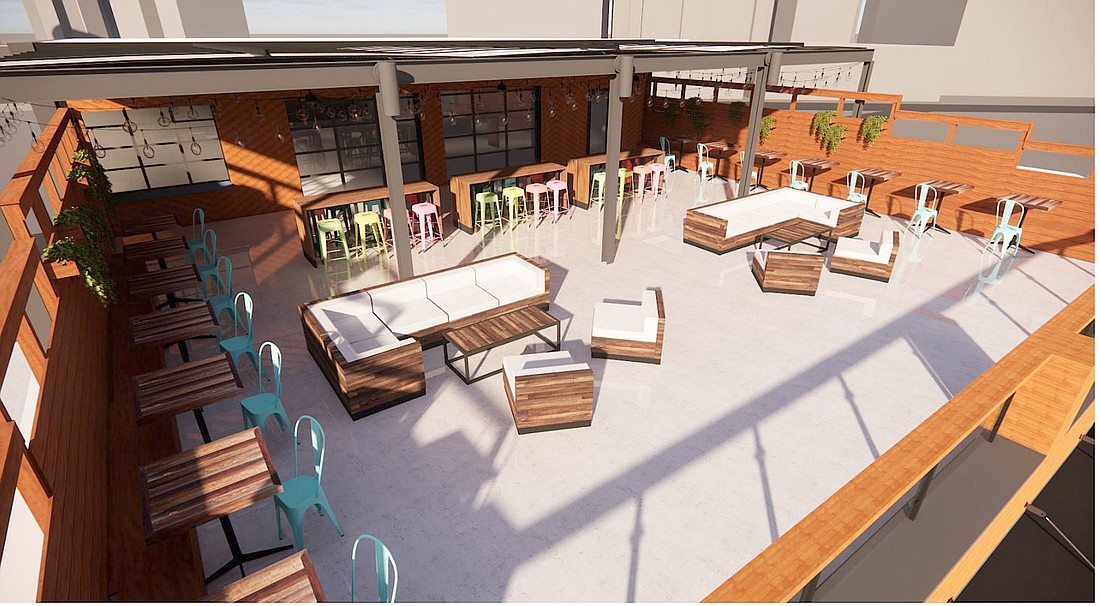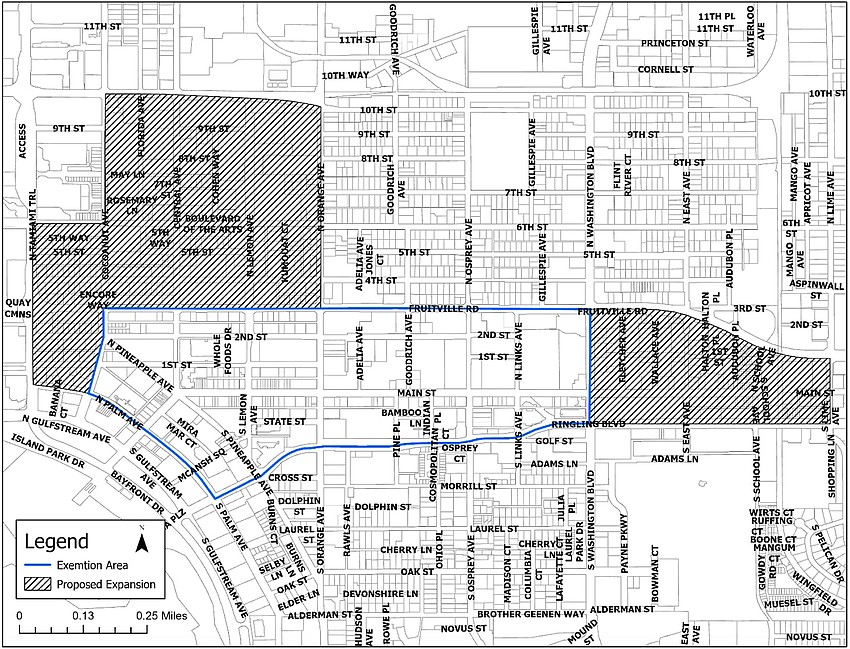- April 1, 2025
-
-
Loading

Loading

Planning Board members were divided — but not as sharply as a 3-2 vote during a Sept. 21 special meeting would suggest — over the city planning staff’s proposed zoning text amendment drafted to streamline the definitiions and approval process for new alcohol-serving establishments in the downtown area.
Board member Daniel Deleo said he approved of much of the amendment, but he was uncomfortable with the lack of assessment, as much as one is possible, on the overall impact of the balance among restaurants and bars and residents.
Chairman Dan Clermont said he was 95% for the changes, but the 5% of doubt regarding possible loopholes in the definition of a rooftop outdoor bar was enough to leave him opposed.
The two joined to vote against recommending approval of the amendment to the City Commission, while members Michael Halflants, Terrell Salem and Shane Lamay voted in favor.
“I've never heard anybody say, ‘I love Sarasota. It's amazing. It's such a great place to go retire, but only if it had more bars it would be better,’” Deleo said. “I want high quality in the community. I don't want to do harm to the community, but I'm having trouble understanding exactly what the impact of this is going to be.”
Clermont said a rooftop bar was not clearly enough defined and that enterprising businesspeople will find a way to turn an indoor bar into an outdoor bar with no consequences.
Under the ordinance, as long as the seating and serving bar was fully under roof and in a fully enclosed space, it qualifies, even if it has outdoor seating, essentially the purpose of a rooftop bar.
But, Clermont told staff, a structure with garage doors or folding glass walls that can be opened could easily convert an indoor rooftop bar effectively into an outdoor bar, operating well into the night close to residences.
“I'm just very concerned about this because we could have several of them in a row in an area and there's nothing we can do about it,” Clermont said. “This is my only hang-up out of a 95% yes, but I’ve got this 5% gnawing at me. It's hard for me to advise the commission to go ahead and approve this when we don't really know what's going to happen here.”
Planning Director Steven Cover reminded board members that an establishment with a rooftop bar will require a major conditional use permit, which includes the Planning Board and City Commission public hearing process.
City staff began working on the proposed zoning text amendment earlier this year and unveiled its proposal during a June virtual public workshop. It is intended to create new, or modify existing, definitions for bars, outdoor bars, nightclubs and bottle clubs. It also:
The new rules do not affect current establishments, which were permitted per state licensing standards that don’t always match their uses. They also allow for restaurants of less than 2,000 square feet, providing they meet the 51% food to alcohol sales ratio, to no longer be categorized as nightclubs as they are today.
“There is confusion and a lack of clarity pertaining to the definitions and standards of bars, outdoor bars and nightclubs within the city zoning code,” said Senior Planner Brianna Dobbs. “Tying definitions to state licensing is not a reliable way to determine how an establishment will actually operate. This has resulted in establishments being classified as nightclubs that do not operate as such, or other establishments that are classified as restaurants despite operating like nightclubs later into the evening.”
Currently, the city’s zoning code lends to confusion and lack of clarity pertaining to the definitions and standards for uses typically associated with nighttime activities. The definition of a bar does not provide a clear distinction between a bar and an outdoor bar, rooftop or otherwise. The current definition of outdoor bars, for example, only permits them as an accessory use to a hotel, motel or private club. Outdoor bars cannot be considered as a primary use.
The amendment proposes to allow an outdoor bar as a primary use or as an accessory use to an attached establishment. It does not, however, address noise issues. That, Cover said during a prior public workshop, will come in the form of a separate ordinance.

In addition to redefining uses, the text amendment also proposes to expand the Downtown Exemption Area Map relative to bars, restaurants, nightclubs and bottle clubs to other redeveloping commercial areas of the downtown, including those north of Fruitville Road and east of U.S. 301.
That means the 500-foot separation requirement from the nearest school or church/synagogue/sanctuary, residential zoned property, or another bar, outdoor bar, nightclub, or alcoholic beverage store applies outside of the Downtown Exemption Area.
That means bars that provide live, amplified music after 11 p.m. Sunday through Thursday or 11:59 p.m. Fridays, Saturdays or the day prior to a holiday would be classified as a nightclub and would be required to obtain a major conditional use permit.
The entire text amendment and staff report are available on the city's website at Sarasota.granicus.com.